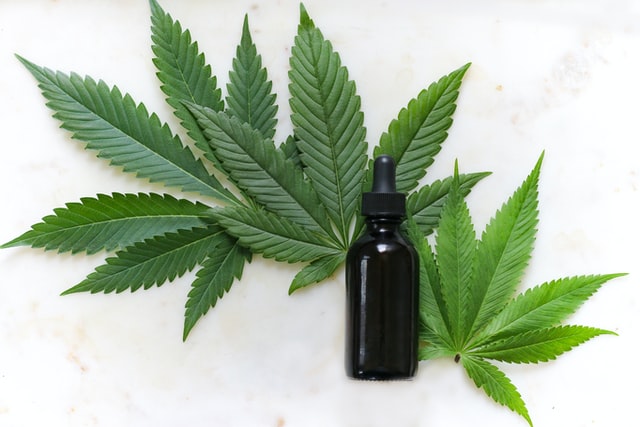

Cannabis-based products: takeaways & future policy changes
Our specialists look back at the main events during the first year of ANVISA's regulation on cannabis-based products.
In January 2020, the Brazilian Health Regulatory Agency (ANVISA) issued Board Resolution No. 335/2020. This regulation updated criteria and procedures regarding the importation of cannabis-based products by individuals for treating health conditions, provided it is for their own use and prescribed by a qualified medical professional.
March 2020 marked a significant milestone for the cannabis-based products’ market in Brazil. ANVISA’s Board Resolution No. 327/2019 introduced requirements for manufacturing, selling, prescribing, distributing, monitoring and inspecting cannabis-based products for medical purposes, representing a significant step forward for the Brazilian cannabis-based product market. However, ANVISA has not continued with a proposal to regulate cannabis cultivation. Therefore, at this point, importing cannabis-based products or semi-prepared raw materials is the only alternative.
ANVISA registered the first such product in April 2020, a cannabidiol-based product with a 200 mg/mL concentration. It is important to clarify that ANVISA does not consider cannabis-based products to be medicine but rather a new, separate category. According to the agency, this specific category was created as the current technical and scientific research remains insufficient for cannabis-based products to be considered medicine. For products to be registered as medicines, clinical research proving safety and efficacy must be carried out beforehand.
September 2020 saw the National Commission for Incorporating Technologies into the Brazilian Unified Health System (CONITEC) open Public Consultation No. 49/2020. The consultation concerned a drug containing 27 mg/ml of tetrahydrocannabinol (THC) and 25 mg/ml of cannabidiol (CBD) as an adjuvant treatment for relieving symptoms in adult patients diagnosed with multiple sclerosis. Following a decision and a final report from CONITEC in November 2020, the medicine was not incorporated into the Brazilian Unified Health System (SUS).
In March 2021, CONITEC addressed the subject once more when opening Public Consultation No. 12/2021. It received contributions for incorporating 200mg/ml-concentrated cannabidiol in the SUS to treat children and adolescents with drug-resistant epilepsy. A decision in June 2021 later determined against its incorporation.
April 2021 was marked by two important events. Firstly, ANVISA approved two new cannabis-based products for oral use, concentrated solutions (17.18 mg/mL and 34.36 mg/mL respectively) with up to 0.2% THC, which fall under a type B prescription. Consequently, the registration holder may import the products ready for use and start commercializing them in Brazil. As provided in the regulation, cannabidiol may be prescribed when other therapeutic options in the Brazilian market have run out. Furthermore, physicians are responsible for prescribing cannabis products, and patients must be informed about their use.
Secondly, there were broad discussions in the Brazilian Congress regarding the use of medical cannabis, especially in regard to Bill No. 399/2015, which aims to regulate the cultivation of medicinal cannabis and industrial hemp products. The congressman responsible for introducing the bill presented its report (here), along with a submission deadline for new amendments.
In May 2021, ANVISA approved the registration of one other cannabis-based product, an oral solution containing 200 mg/mL of CBD and up to 0.2% of THC. As it was created in a public laboratory, the product will be supplied to the Ministry of Health and public health agencies.
Bill No. 399/2015 represents a possible and important future policy change, as it encompasses the regulation of two key elements:
- permission for legal entities with prior authorization from the government to cultivate medicinal cannabis; and
- permission to cultivate industrial hemp for non-medical purposes, such as for use in textiles and agricultural products.
It is important to highlight that the bill establishes several proceedings for controlling medicinal cannabis and industrial hemp cultivation, including production traceability from seed acquisition to final processing and distribution. Thus, qualitative and quantitative standards regarding safety measures and environmental concerns should be followed to avoid irregular production – this may require a technician responsible for ensuring good agricultural practices.
The bill’s supporters contend it would lead to substantial public health benefits in Brazil, pointing towards scientific evidence for benefits derived from using cannabis-based products. Furthermore, there are also economic reasons for introducing the bill, such as the creation of a new market and tax, revenue and job generation. The market for legal industrial hemp in China exceeded USD 1.2 billion in 2018, and studies have estimated that regulated medicinal cannabis could generate approximately BRL 4.7 billion for Brazil’s economy.
To that extent, the proposals in Bill No. 399/2015 should assist in consolidating a supply and production chain, from cultivation to processing, production and the development of products and plant varieties.
On June 8, 2021, Bill No. 399/2015 was approved. However, an appeal was filed against the bill’s passing only two weeks later, which is subject to the deliberation of the Board of the House of Representatives (MESA). If definitively approved in the House of Representatives, the bill will proceed to the Federal Senate, where if passed, it must be signed into law or vetoed by the President.
Based on recent developments and considering the progress of discussions within civil society, regulation for cannabis-based products is set to expand quickly. Despite the pandemic, the subject is back on the government’s agenda, being a regular theme of lawsuits and SUS incorporation requests. The second half of 2021 should bring further news, and active monitoring is recommended for anyone interested in this business area.
For further information, contact Mattos Filho’s Life Sciences and Healthcare practice area.
*In cooperation with Lucas Barreto and Maria Eduarda Garambone Sydenstricker.


